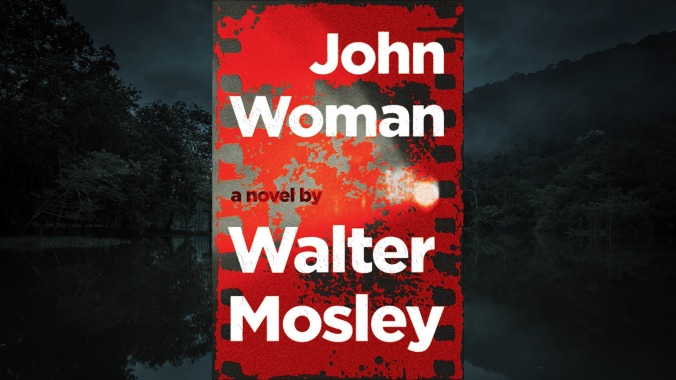History and its manipulation is the all-consuming center of Walter Mosley’s new genre-bending novel. The lessons of the past are not static to skillful interpreters, even if they are at best only partially understood. Yet presenting limited historical knowledge as irrefutable truth condemns many people to suffer unknowingly under the terrible weight of half-truths and doctored information.
That lesson is at the heart of the teachings of John Woman, a seductive deconstructionist history professor toiling away at a fictional Arizona university. Woman’s command of history grows from seeing the field as a series of aggrandizing myths and outright lies that scab over an unknowable truth. To him, Abraham Lincoln is no greater a figure than the semi-anonymous cashier whose initials appear on a discarded drug store receipt. Through his lectures, Woman instructs students to break down frameworks supplied by compromised storytellers seeking to gaslight the world.
Woman points out that accepting real history is unknowable can be an act of liberation instead of despair. Examining the atoms of the past illuminates historical antimatter: For every verified event how many more go undocumented? Woman also teaches that historical inquiry can become a tool by which we shape the future.
These thoughts were first bestowed upon him by his father, a Southern sharecropper turned projectionist at a movie house in Manhattan’s East Village, and born out through Woman’s own lifetime of reinvention. The book begins with Woman as a teenager with another name: Cornelius “CC” Jones. Reflecting facets of Mosley’s own biography, CC is the child of a white mother and black father. An obedient son, CC strains to preserve loyalties to both parents amid their frosty separation. Later, he takes on his father’s job at the theater after the patriarch is bedridden by severe illness. Disaster follows when CC loses both parents and kills the cinema’s owner in a fight. An unexpected windfall allows him to escape the fraught situation, and he further distances himself by taking up the alias “John Woman”—his new surname referencing a clandestine sexual encounter with a female police detective
Following his rechristening, the story picks up after an interlude of about 18 years. John Woman is now a dynamic force at the New University Of The Southwest, passing on his father’s wisdom mastered after a lifetime of rumination. Woman’s beliefs don’t hold sway throughout the department, however. Outraged colleagues view his dismissal of the great men, great ideas, and objective truth schools of historical thinking as personal attacks. They disdain his penchant to downplay narrow research in lieu of interdisciplinary cultural analysis. A conspiracy forms to get him fired, often aided by Woman’s own shirked academic duties and illicit sexual affairs. A wildcard emerges when it’s revealed the university’s mysterious owners, a messianic sect known as the Platinum Path, are interested in his teachings.
Woman’s ideas are also, at times, in conflict with his own reality. Anonymous notes left in his apartment hint at knowledge of Woman’s past life. And though Woman can make mincemeat of any historical narrative, he struggles to shake feelings of guilt and longing over what he did and what he lost when he was CC. Even internally, Woman struggles to blast away lingering emotional detritus swirling in his psyche. Both his own mind and the world around him produce evidence that CC is never far away. A confrontation is needed to reshuffle the deck.
There’s nothing but nits to pick with this book, and those land squarely within the realm of personal taste. A case can be made that many developments hinge on a preternatural amount of planning, and at times, the sex scenes veer into eye-rolling cheese. But Mosley has been at this for a long time—John Woman is his 15th novel released in this decade alone—and he seamlessly combines elements of dystopian thrillers, psychological crime, philosophical fiction, and straightforward melodrama. His rich, earthy prose burrows through complex abstract ideas and suspenseful plot twists with equal utility. And the cascade of syncopated revelations during the final sprint feel fully earned. Don’t expect certainty, though. As always, the final truth is up for grabs.









































